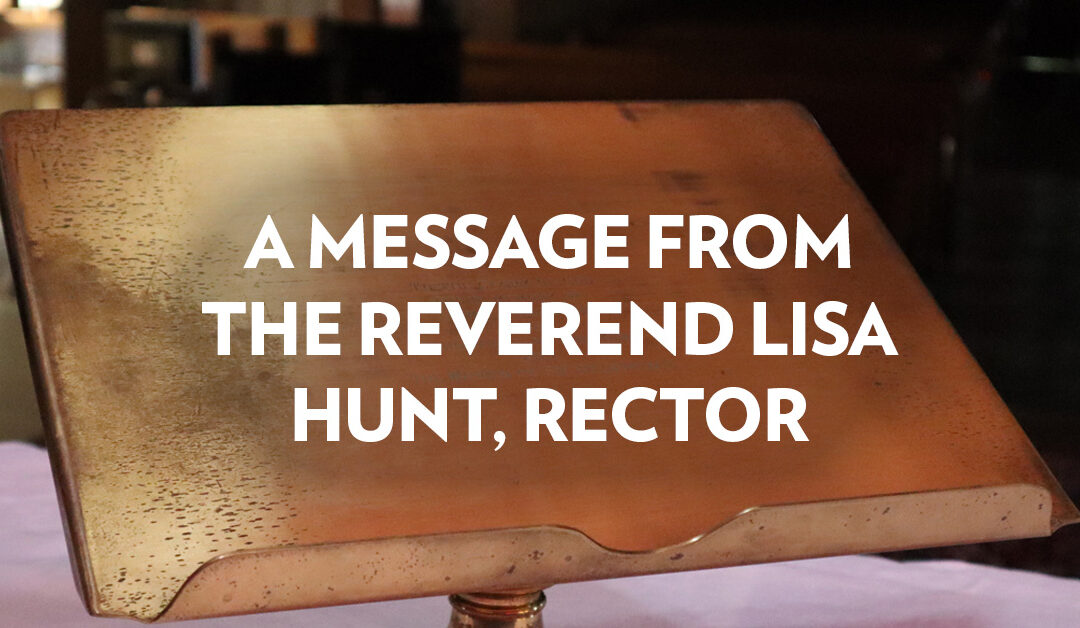When I was a young girl growing up in an evangelical Christian tradition I was terrified of hell. It was not preached about incessantly in my home congregation, but when it was, the images I had were horrific–a lake of fire, people burning in never ending torment cut off from one another. There is a reason that the Bible uses images of fire to describe life which rejects God; it is unbearable.You don’t want to go there.
I had a theology professor who once spoke of hell as a pedagogical tool used to prompt people to right action. Rather than being lured into righteousness out of love, some folks are motivated by fear, he said. Hell is a corrective device.
It is 105 degrees Fahrenheit in Houston today.
We have been living in what the meteorologists call a heat dome for weeks and much of the planet is experiencing similar heat related conditions. From Maui to Canada to Europe, much of the world is ablaze. Poor nations and the poor in wealthy countries are suffering from heat’s impact most acutely. For decades scientists have been warning of the dangers of global warming. Like the Hebrew prophets before them, they are ignored by many.
I am reminded of the story of the rich man and Lazarus that Jesus relates in the gospel of Luke.
19 “There was a certain rich man who clothed himself in purple and fine linen, and who feasted luxuriously every day. 20 At his gate lay a certain poor man named Lazarus who was covered with sores. 21 Lazarus longed to eat the crumbs that fell from the rich man’s table. Instead, dogs would come and lick his sores.
22 “The poor man died and was carried by angels to Abraham’s side. The rich man also died and was buried. 23 While being tormented in the place of the dead, he looked up and saw Abraham at a distance with Lazarus at his side. 24 He shouted, ‘Father Abraham, have mercy on me. Send Lazarus to dip the tip of his finger in water and cool my tongue, because I’m suffering in this flame.’ 25 But Abraham said, ‘Child, remember that during your lifetime you received good things, whereas Lazarus received terrible things. Now Lazarus is being comforted and you are in great pain. 26 Moreover, a great crevasse has been fixed between us and you. Those who wish to cross over from here to you cannot. Neither can anyone cross from there to us.’
27 “The rich man said, ‘Then I beg you, Father, send Lazarus to my father’s house. 28 I have five brothers. He needs to warn them so that they don’t come to this place of agony.’ 29 Abraham replied, ‘They have Moses and the Prophets. They must listen to them.’ 30 The rich man said, ‘No, Father Abraham! But if someone from the dead goes to them, they will change their hearts and lives.’ 31 Abraham said, ‘If they don’t listen to Moses and the Prophets, then neither will they be persuaded if someone rises from the dead.’” (Luke 16:19-31).
Jesus goads to his listeners that they, like the rich man, have eyes to see and ears to hear, if they choose to do so. We, too, have Moses and the prophets. While they might not name themselves prophets, our climatologists serve a similar role. They call us into right relationship with Earth, our island home, and each other across the divides of nation and class. Collectively we can respond, if we choose.
Getting a taste of hell this summer is a viscereral warning. While I may not be a biblical literalist, I appreciate the power of warning and warming.
– The Reverend Lisa Hunt, Rector

